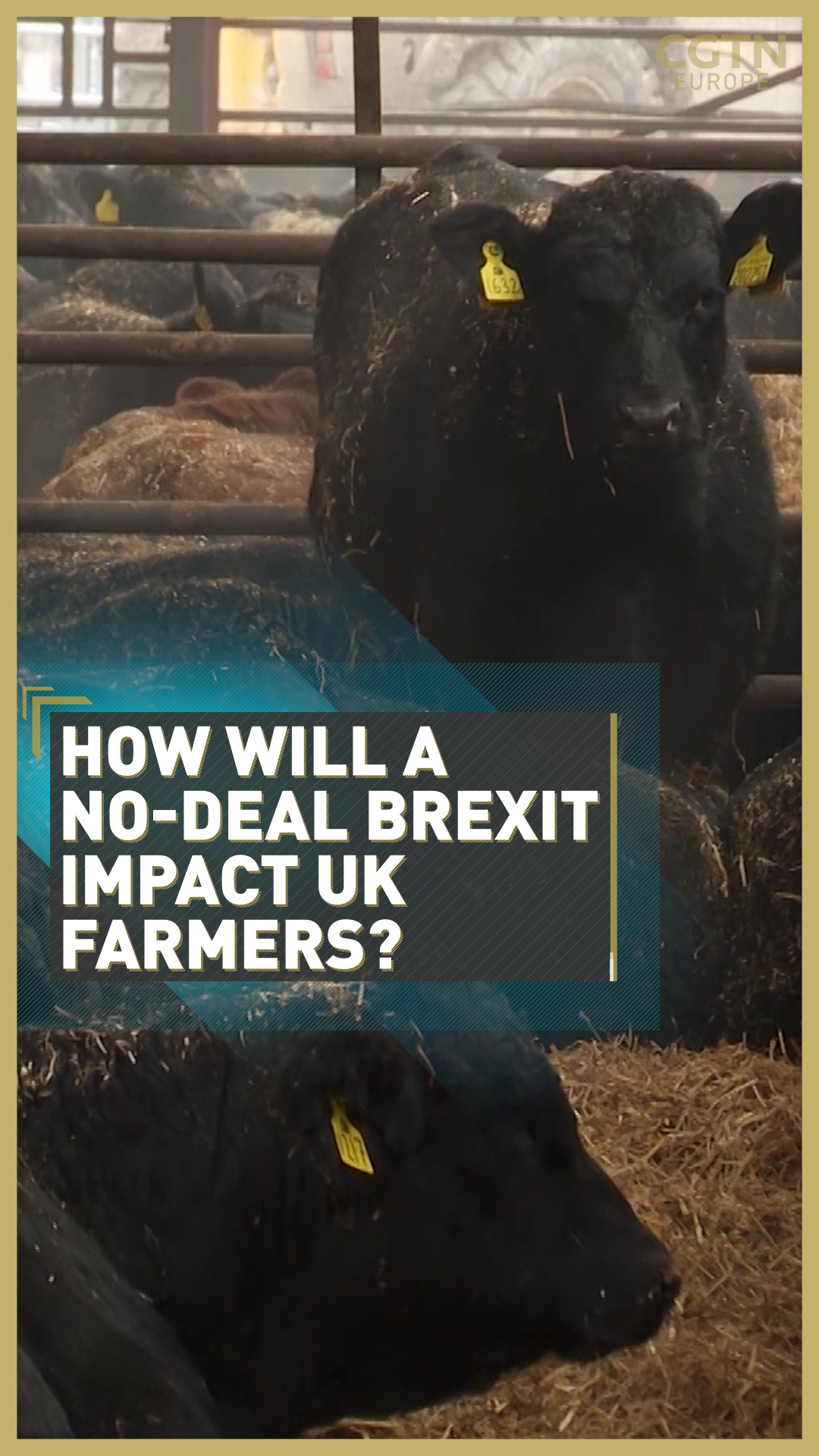03:00

UK farmers have been hit hard by the COVID-19 pandemic and they now fear more problems could be on the horizon if a no-deal Brexit follows at the end of the year.
The deadline for the UK and EU to agree a trade deal is December 31, but if they don't shake hands on a deal then, farmers face increased tariffs on meat and live animals and masses of additional paperwork.
The recent introduction of the government's sustainable farming bill has also provided them with another headache. Over the next seven years, the government wants to move towards a system that rewards farmers and land managers in England for sustainable farming practices.
The idea is that by 2028, farmers in England will be able to sustainably produce healthy food profitably without subsidy, whilst taking steps to improve the environment, improve animal health and welfare and reduce carbon emissions.

But those changes will take time and money. Dan Burling is the fourth generation to work his 3,000-acre (1.2m square meter) holding near Cambridge and has spent the last 10 years making his farm more sustainable.
His hybrid herd is carefully bred for health, temperament, optimal yield on minimal cost and low impact on the land. The cows eat a carefully mixed diet of straw and vegetables, cast-offs from the supermarkets that will buy their meat.
But, despite all of his hard work, he fears that supermarkets will choose to purchase cheaper, lower quality meat from countries outside the EU if the UK fails to agree a trade deal, leaving him short of income.
He told CGTN: "All the hard work we're putting in – extra data recording that we're doing, high focus on genetics, producing functioning high-welfare animals, reducing antibiotic use, using feed more efficiently – will possibly be undermined just because of the potential of importing cheaper inferior product into the UK."

Farmers in England fear supermarkets will purchase cheaper, lower quality meat from other countries if a Brexit trade deal isn't agreed by December 31. /CGTN
Farmers in England fear supermarkets will purchase cheaper, lower quality meat from other countries if a Brexit trade deal isn't agreed by December 31. /CGTN
Another additional cost could come in the form of a mandatory $250 health certificate for each farm. Nick Allen, the CEO of the British Meat Processors Association, says it will eat into diminishing margins for UK farmers.
"You can't get away from the fact that this is a massive extra cost," he said. "The government's own estimate suggests actually we need 300,000 extra of those certificates per year – that's a 60 million pounds ($80 million) cost to the industry – and that's before we get into the potential issue of tariffs if we actually have no deal."
A fresh agriculture policy is long overdue, and gradually Britain's farms are becoming more efficient and mindful of the environment and its limitations.
But there are hurdles to jump before that. How high those will be is up to the negotiators in London and Brussels.
(Cover photo: Farmers from the group Save British Farming drive tractors around Parliament Square in a protest in London, UK, July 8, 2020. /AP)

